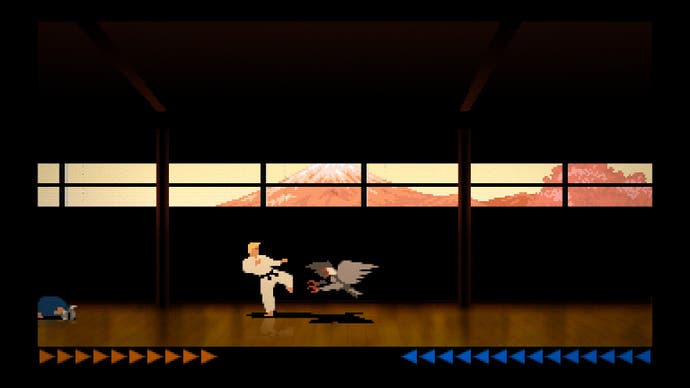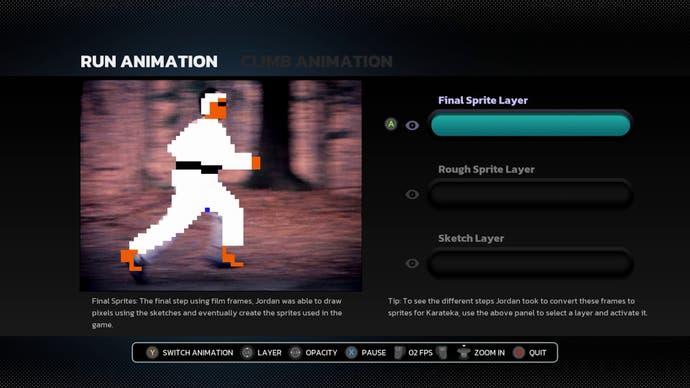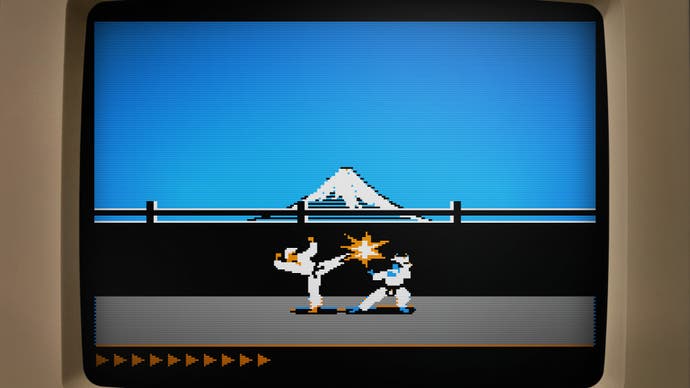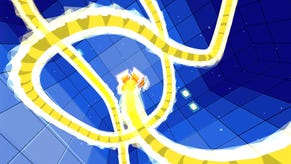The Making of Karateka is so much more than the making of Karateka
"When I saw you struggling..."
When it comes to books, I'm always searching for something I cannot quite put into words. I know this isn't useful. Let's have a go at getting to this. I'm after something that is absolutely a book and also more than a book, something that tells a story but also opens that story out in surprising ways, taking different forms, trying different things.
I have caught glimpses of this book-non-book over the years. Maddening glimpses. There's something of it in The Spy's Guidebook, which is an overview of codes and kids' espionage stuff and also, in a way, the design document for a million summer holidays. There's something of it in Choose Your Own Adventures, not the choices so much, but the text working with those evocative pen-and-ink drawings, all turtlenecks and loon pants, suggesting some huge multi-book 1970s world-building project. Something of it too in all the cook books I've bought over the years despite not being a brilliant cook. They offer recipes, but also a way, as Fergus Henderson once put it, of being in the world. That's close.
Maybe you understand this desire, poorly articulated, for a book that resists the confines of its own covers, that seems eager to shrug off various forms at will and blend readability and writeability (a word, I have just discovered, that Google Docs is eager to transform into "readability", which feels like some kind of philosophical prank). If so, I reckon you will love The Making of Karateka, which has just come out. I should add: there are plenty of other reasons to love this brilliant piece of software, but the book-non-book was my way in, and I reckon there are worse ways to get started here.
The Making of Karateka is the latest from Digital Eclipse, who recently made the brilliant Atari 50 collection, which was a celebration of games as well as a dizzying museum of their creation, a museum which seemed to unfold in every direction like a paper castle springing from the pages of a pop-up book. I love Atari 50, but I think The Making of Karateka is even better, because it tells a single story. You travel a long distance with a couple of the characters. It's gently novelistic.
In essence, this really is the making of Karateka, a vividly cinematic karate game that came out in the early 1980s and serves as an intriguing ancestor to everything from Uncharted to 50 Flights of Loving. It was made by Jordan Mechner, and it used the rotoscoped animation that I more immediately associate with his follow-up game, Prince of Persia.
Cor, you get to the bottom of it here. You learn about what Mechner was like as a kid, his love of movies, his experience at Yale (too busy making computer games to study much) and his rocketing path to success. But you aren't just told it, in text and lovely, sweet-natured video clips. You get to read diary entries and design documents, you get to play prototypes of early games. You might get a breakdown of the music or pages from an autobiographical graphic novel. It's a wild collection of mixed media stuff, somehow wrangled into a timeline that takes you through the various stages of the project.
At first I was eager to play the several different versions of Karateka itself included in the package, but over time I found myself drawn to other elements. Karateka is a funny beast. It's cinematic but it actually has the starkness of theatre. Except, unlike theatre, it uses cross-cuts to create tension. You're the hero running left-to-right, defeating enemies to get to the goal, but after each enemy, you cut to the extreme right where the big baddy is reacting to the things you're doing over on the left. It's beautifully controlled and direct, and puts me in mind of that episode of Every Frame a Painting about Snowpiercer and its left/right dynamic.


Over time, while working through The Making of Karateka, I actually find myself thinking of Karateka less and less, and I mean this as a compliment, albeit a weird one. I'm drawn outwards to the little details. There is a lovely concealed story in here, told over the course of the whole project, about Jordan and his dad Francis, who was a brilliant academic and who also helped his son out with Karateka, writing the music, helping with a bit of the rotoscoping - he gamely put on a karate suit and filmed a few takes running - and in general with spitballing ideas. There's a beautiful moment where Jordan is having a hard time with the animation and his dad gives him a new way forward. In a clip, remembering all this after decades have passed, he says, "I suggested, when I saw you struggling..." What an ideal sentence opener for a parent. I want to notice things like that more, and be able, simply, to suggest, or listen, or help in undemonstrative ways.
There's so much stuff like this. Towards the end of the documentary clips I suddenly realised that Mechners junior and senior both have the same shaped head, just completely identical. I love the space that the format gave them for their relationship to emerge, too. I also love - really love - the odd off-shoots that you would normally never get to see, because I can't imagine many other ways of telling the story where they'd fit. There's a glimpse of a prototype for a game called Earth, and this prototype is just a dinky pixel Earth with the player moving around it. There's a pixel-art pocketwatch with no hands or dial.
No hands or dial! I played The Making of Karateka - if play is the right verb - the same week I finished up Bomb Rush Cyberpunk, Team Reptile's glorious, and gloriously eerie, reconstruction of the Jet Set Radio games. It was one of those accidental pairings that just works so beautifully - salt and caramel. And it tells me: games have been around for a long time now. We love them, and struggle to preserve them, in playable code but also, maybe, in our memories. And we struggle to understand the best ways to bring them back to life. This week I saw two of these potential ways and I loved them both. And it makes me realise, too, that when games are concerned, everything is just itching to turn into a book-non-book.



